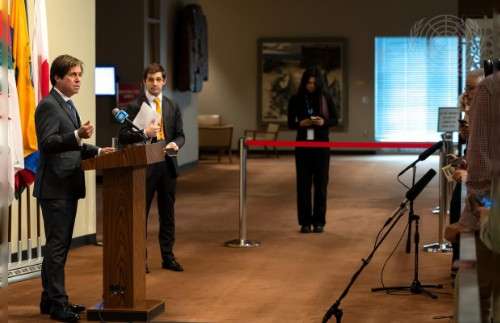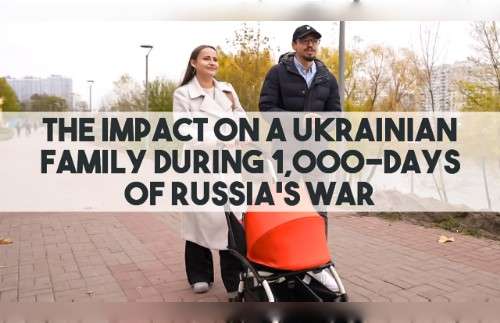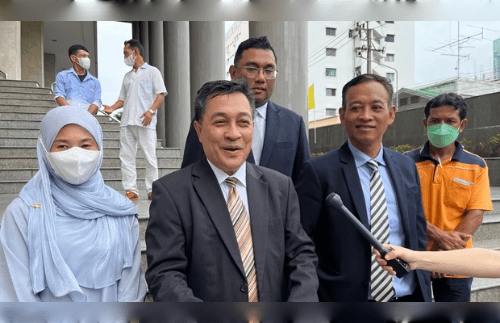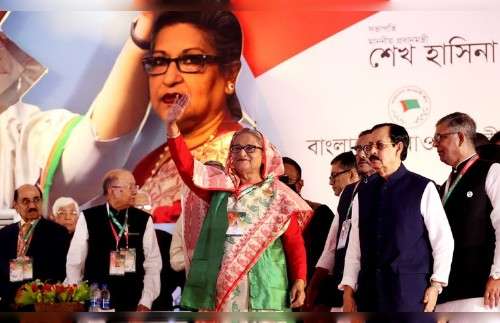
Police from Shanghai have detained a lawyer-turned-citizen journalist who reported on the emerging coronavirus epidemic in the central Chinese city of Wuhan.
Zhang Zhan, who lives in Shanghai but who traveled to Wuhan in early February, was taken away from Wuhan’s Caiguang Hotel near Hankou railway station on the night of May 14.
A friend of Zhang’s who gave only a surname Tang said he was told by hotel staff when he went in search of her on May 15 that she had checked out of the hotel the night before.
“I inquired at the front desk, saying I hadn’t been able to reach my friend Zhang Zhan,” Tang said. “The staff at the Caiguang Hotel said she checked out the day before.”
Asked if Zhang had left the hotel alone, the staff only replied that “it’s not convenient to discuss the details,” using a phrase often used by activists to indicate the intervention of the authorities.
“You probably know what happened,” the staff member said.
Gao Fei, a supporter of Zhang’s from Hubei province, said he had learned that she is being held under criminal detention in Shanghai’s Pudong New District Detention Center, on suspicion of “picking quarrels and stirring up trouble,” a charge often used to target peaceful critics of the ruling Chinese Communist Party.
“[People have been] calling the Pudong branch of the Shanghai police department, hoping to get her status changed to residential surveillance,” Gao said.
“They won’t let her speak out, or report the truth about what’s happening,” he said. “But I wish they would treat her with a bit more humanity.”
An officer who answered the phone at the Pudong police department declined to comment on Zhang’s case when contacted by RFA on Monday.
We don’t have access to that information here,” the officer said. “You need to get in touch with her family, OK? They should have received some notification.”
Zhang’s detention came after she told RFA she didn’t believe it was safe to keep sending reports to Twitter and YouTube from Wuhan.
‘What’s the point of staying safe?’
“What’s the point of staying safe?” Zhang, who turns 40 this year, said in an interview with RFA last week. “What will you do with that safety? Learn to co-exist with an evil regime?”
“You really shouldn’t concern yourself with this stuff; let them detain me, if that’s what they want to do,” she said. “We’re in prison anywhere in China, whether we’re in jail or on the outside.”
“What difference is there? None, from my point of view.”
Zhang moved to Shanghai from the northern province of Shaanxi in 2010, and formerly worked as a lawyer before official retaliation took her license to practise away.
Gao said Zhang had previously been detained by the authorities for seven days in connection with her reporting of the coronavirus epidemic in Wuhan.
“She wasn’t writing anything very extreme. This is ridiculous, because there is absolutely no room to speak out nowadays,” Gao said. “The truth of what’s going on is being locked down.”
It’s about protecting the regime … killing the chickens to frighten the monkeys,” Gao said.
A friend of Zhang’s surnamed Lang currently living in the United States said he had written to the State Department and members of Congress about Zhang’s detention.
“I don’t think we are going to be able to resolve [this] without the intervention of U.S. Congress,” Lang said.
A visit from the police
Lang said his last conversation with Zhang was interrupted by the sound of loud knocking on the door, and a male voice.
“I knew it would be the state security police,” he said. “That’s when we started to get worried.”
In Zhang’s last YouTube video posted on May 13, she had reported on the impact of a huge fall in passenger numbers on the livelihoods of Wuhan’s taxi drivers, as well as loss of employment in the wake of the lockdown among the city’s residents.
She also spoke out against the intimidation of local people by the urban management police, or chengguan, and about a sense of despair at life in China.
Police from Shanghai have detained a lawyer-turned-citizen journalist who reported on the emerging coronavirus epidemic in the central Chinese city of Wuhan.
Zhang Zhan, who lives in Shanghai but who traveled to Wuhan in early February, was taken away from Wuhan’s Caiguang Hotel near Hankou railway station on the night of May 14.
A friend of Zhang’s who gave only a surname Tang said he was told by hotel staff when he went in search of her on May 15 that she had checked out of the hotel the night before.
“I inquired at the front desk, saying I hadn’t been able to reach my friend Zhang Zhan,” Tang said. “The staff at the Caiguang Hotel said she checked out the day before.”
Asked if Zhang had left the hotel alone, the staff only replied that “it’s not convenient to discuss the details,” using a phrase often used by activists to indicate the intervention of the authorities.
“You probably know what happened,” the staff member said.
Gao Fei, a supporter of Zhang’s from Hubei province, said he had learned that she is being held under criminal detention in Shanghai’s Pudong New District Detention Center, on suspicion of “picking quarrels and stirring up trouble,” a charge often used to target peaceful critics of the ruling Chinese Communist Party.
“[People have been] calling the Pudong branch of the Shanghai police department, hoping to get her status changed to residential surveillance,” Gao said.
“They won’t let her speak out, or report the truth about what’s happening,” he said. “But I wish they would treat her with a bit more humanity.”
An officer who answered the phone at the Pudong police department declined to comment on Zhang’s case when contacted by RFA on Monday.
“We don’t have access to that information here,” the officer said. “You need to get in touch with her family, OK? They should have received some notification.”
Zhang’s detention came after she told RFA she didn’t believe it was safe to keep sending reports to Twitter and YouTube from Wuhan.
‘What’s the point of staying safe?’
“What’s the point of staying safe?” Zhang, who turns 40 this year, said in an interview with RFA last week. “What will you do with that safety? Learn to co-exist with an evil regime?”
“You really shouldn’t concern yourself with this stuff; let them detain me, if that’s what they want to do,” she said. “We’re in prison anywhere in China, whether we’re in jail or on the outside.”
“What difference is there? None, from my point of view.”
Zhang moved to Shanghai from the northern province of Shaanxi in 2010, and formerly worked as a lawyer before official retaliation took her license to practise away.
Gao said Zhang had previously been detained by the authorities for seven days in connection with her reporting of the coronavirus epidemic in Wuhan.
“She wasn’t writing anything very extreme. This is ridiculous, because there is absolutely no room to speak out nowadays,” Gao said. “The truth of what’s going on is being locked down.”
“It’s about protecting the regime … killing the chickens to frighten the monkeys,” Gao said.
A friend of Zhang’s surnamed Lang currently living in the United States said he had written to the State Department and members of Congress about Zhang’s detention.
“I don’t think we are going to be able to resolve [this] without the intervention of U.S. Congress,” Lang said.
A visit from the police
Lang said his last conversation with Zhang was interrupted by the sound of loud knocking on the door, and a male voice.
“I knew it would be the state security police,” he said. “That’s when we started to get worried.”
In Zhang’s last YouTube video posted on May 13, she had reported on the impact of a huge fall in passenger numbers on the livelihoods of Wuhan’s taxi drivers, as well as loss of employment in the wake of the lockdown among the city’s residents.
She also spoke out against the intimidation of local people by the urban management police, or chengguan, and about a sense of despair at life in China.
The Chinese government has targeted thousands of people for speaking out about the coronavirus epidemic in the country since it began in late December in the central city of Wuhan.
After President Xi Jinping said he would lead “a people’s war” on the epidemic on Jan. 20, police handled 5,111 cases of “fabricating and deliberately disseminating false and harmful information,” according to a Feb. 21 statement from the ministry of public security.
Between Jan. 1 and March 26, nearly 900 internet users were penalized by police for their online speech or info-sharing about the coronavirus epidemic, across almost every province, region, and municipality in China.
Charges used to question, detain, and arrest people included “rumor-mongering,” “fabricating false information,” “sowing panic,” “disturbing public order,” and “breach of privacy.”
Cases in which people were accused of “spreading misinformation” or “disrupting public order” accounted for more than 96 percent of cases, according to the overseas-based Chinese Human Rights Defenders (CHRD) network.
Others also held
Citizen journalist and lawyer Chen Qiushi was taken away by police on Feb. 6 after he started livestreaming from hospitals in Wuhan.
Similar treatment was meted out to rights activist and citizen journalist Fang Bin, who was detained on Feb. 9, and to former anchor with state broadcaster CCTV, Li Zehua, who was detained on Feb. 26.
Authorities in the eastern city of Nanjing detained dissident intellectual Guo Quan on charges of “incitement to subvert state power” on Jan. 31 and then formally arrested him in February after he spoke out online about the coronavirus outbreak. He is currently being held at the Nanjing No. 2 Detention Center, CHRD said.
Property tycoon Ren Zhiqiang was placed under party investigation on March 12 after writing an essay critical of President Xi.
Reported by Qiao Long for RFA’s Mandarin Service, and by Wong Lok-to for the Cantonese Service. Translated and edited by Luisetta Mudie
Copyright © 1998-2020, RFA. Used with the permission of Radio Free Asia, 2025 M St. NW, Suite 300, Washington DC 20036. https://www.rfa.org
Mary Jane Veloso, a Filipina on Death Row in Indonesia,is Coming Home
Trapped in Lebanon, African Migrants Face Unemployment and Rockets
The Impact on a Ukrainian Family During 1,000-Days of Russia’s War
UN Security Council Meets to Discuss the Situation in Libya
Syrian Refugees in Lebanon Flee Bombs
AI Embraced by South African Universities,Seeing it as Equalizing Tool
For Malawi’s Poorest,World Bank Provides Climate Shock Assistance
Subscribe Our You Tube Channel
Fighting Fake News
Fighting Lies

















